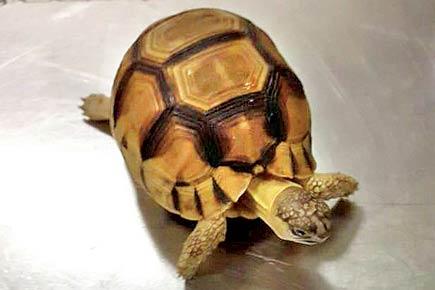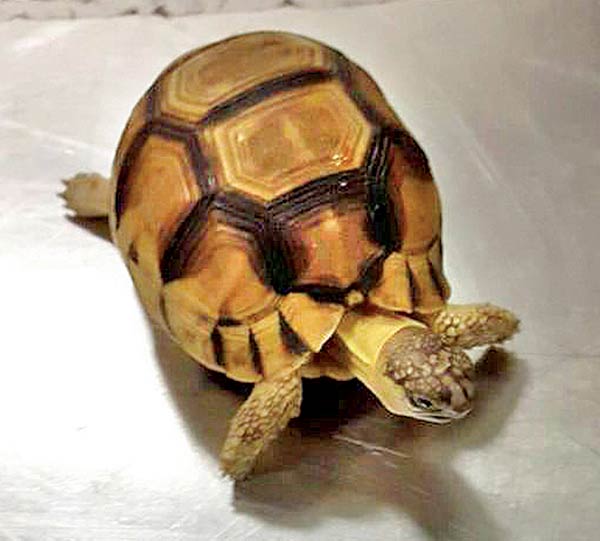The critically endangered reptiles were recovered from an unclaimed bag that had been lying at the airport since last week

The fate of 144 critically endangered tortoises, smuggled from Madagascar, hangs in balance as they await the journey back home.
ADVERTISEMENT

One of the seven critically endangered Angonoka tortoises
Out of these 144, 137 are radiated tortoises and seven are Angonoka tortoises. Air Intelligence Unit (AIU) officers confiscated a total of 146 animals yesterday, out of which two had died, and are currently looking after them. The authorities are now awaiting a green signal from the Air Mauritius officials to resend the tortoises back to Madagascar.
An AIU officer said, “Studies claim that these species will go extinct in the wild in the next 10 to 15 years. Forest Department officials were called, but they couldn’t take them along as they aren’t Indian species and carry the risk of spreading unknown diseases. Hence, we approached the airline to fly them back as Indian weather may not be conducive for them. Moreover, two radiated tortoises were found dead with broken shells due to travel stress.”
Speaking to mid-day, a senior Air Mauritius officer said they were informed about the tortoises just yesterday and would need time to secure necessary permissions from the local government and follow the IATA protocol.
The tortoises were recovered from an unclaimed bag lying at the airport since March 16. It was yesterday that a GVK staffer took notice of the suspicious bag and informed Jet Airways through which the smuggler had left the country. The airline took the bag in its custody and informed the AIU yesterday. Investigation revealed that the bag belonged to transit passenger Lal Bahadur, who had travelled to Mumbai from Madagascar via Air Mauritus flight (MK 748) and left for Kathmandu via Jet Airways flight. Upon finding tortoises in the bags, the AIU immediately sought help from forest officials.
Commenting on the issue, another AIU officer said, “The airline has been instructed to re-export the animals to Madagascar under supervision of local wildlife authorities there. This is done as per instructions from our wildlife authorities because exotic species can’t be introduced in India. We are feeding them coriander, cabbage and water. But to ensure their survival, we want them to be flown back to Madagascar at the earliest.”
 Subscribe today by clicking the link and stay updated with the latest news!" Click here!
Subscribe today by clicking the link and stay updated with the latest news!" Click here!






